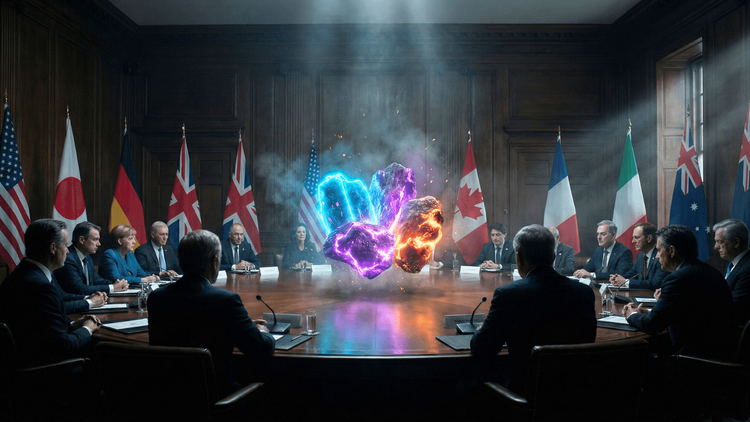UAMY, PPTA, and MILIF: The Antimony Boom Explained
Antimony: The Strategic Metal Driving Stock Surges Amid China's Export Ban

Antimony, a critical mineral integral to military applications, energy storage, and advanced manufacturing, has recently experienced a dramatic surge in both demand and price. This escalation is largely attributed to China's imposition of export restrictions on the metal, a move that has sent shockwaves through global supply chains and prompted significant responses from Western companies.
China's Strategic Export Restrictions
In August 2024, China, which dominates the global antimony market, announced trade restrictions on the export of this strategic mineral. These measures, effective from September 15, 2024, were ostensibly aimed at protecting national security and fulfilling non-proliferation obligations. However, they have had profound implications for industries worldwide that rely on antimony for products ranging from flame retardants to semiconductors.
Impact on Global Supply Chains
The repercussions of China's export restrictions have been immediate and far-reaching. Companies such as Germany's Henkel have declared force majeure, suspending deliveries of key adhesives and lubricants due to delayed raw material imports. The price of antimony has skyrocketed, rallying nearly 230% this year to about $39,000 per metric ton in Rotterdam's spot market.
Western Companies' Response
In response to these disruptions, Western companies are urgently seeking alternative sources of antimony to reduce reliance on Chinese supplies. Perpetua Resources, for instance, is developing an antimony mine in Idaho with U.S. government funding. Similarly, United States Antimony Corporation (UAMY), the only North American processor of the metal, plans to increase production at its Montana smelter, which was operating at 50% capacity prior to China's curbs.
Stock Market Repercussions
The strategic importance of antimony and the supply constraints have led to significant movements in the stock prices of companies involved in its production. United States Antimony Corporation (UAMY) has seen its stock price increase by over 300% year-to-date, reflecting investor confidence in its enhanced production capabilities. Perpetua Resources Corp. (PPTA) has also experienced a substantial uptick in its stock value, underscoring the market's recognition of its strategic projects.


Military Metals Corp.'s Strategic Positioning
Amid these developments, Military Metals Corp. (MILIF) has positioned itself as a pivotal player in the antimony market. The company has acquired significant antimony mineral projects in Slovakia, Nova Scotia, and Nevada, aiming to establish sustainable and independent supply chains for critical minerals. CEO Scott Eldridge emphasized the importance of reducing Western dependence on adversarial nations for strategic resources, aligning the company's mission with broader geopolitical imperatives.

A Bullish Outlook on Antimony
The confluence of China's export restrictions, escalating global demand, and the strategic necessity for antimony in defense and technology sectors paints a decidedly bullish picture for the metal. Companies like UAMY, PPTA, and MILIF are not only poised to capitalize on current market dynamics but also play crucial roles in reshaping global supply chains. As the West intensifies efforts to secure critical minerals, investments in antimony production are likely to yield substantial returns, reinforcing the metal's status as a linchpin in modern industry and defense.






